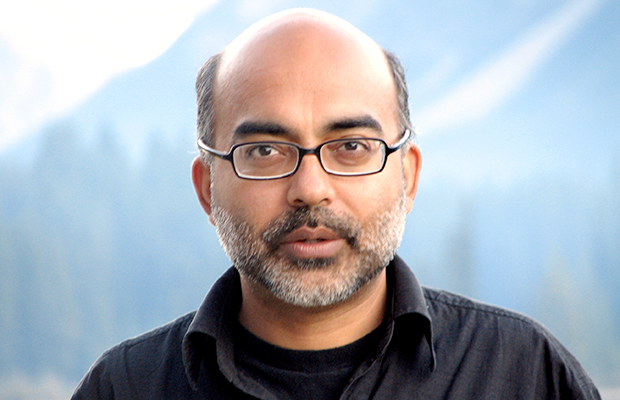
Novelist Jaspreet Singh’s latest novel Helium explores the far-reaching impact of November 1984.
That November is a memory of fire. I saw a burned book, first time in my life. That November my sister’s school was partly reduced to ashes. My entire family survived one of the darkest moments in recent Indian history.
Only a few days before, still recovering from jaundice, I had walked faster than usual to my own school in South Delhi. Around mid-day, we were in the biology lab, dissecting. A strong odour of chloroform filled the laboratory. That is when our biology teacher cancelled the class and walked to my bench and put an arm around my shoulder. You walk carefully all the way back home, she said.
I made it home. But a couple of days later, a mob passed by our block, attacking Sikh citizens. We were the lucky ones. We were able to take refuge in a courageous neighbour’s house.
“Those who survived are not true witnesses.” The Italian writer Primo Levi’s insight into mass violence in Europe is also valid for Delhi and other cities across India.
Only the dead are true witnesses. But the living have come to know a lot. That November 1984, India’s ruling Congress Party used state-controlled radio, television and the dreaded police force to conduct a seamless genocidal pogrom. After Indira Gandhi’s assassination, her son Rajiv Gandhi succeeded her as prime minister and enabled the carnage. Nothing was spontaneous. Cabinet ministers and members of parliament hired and directed mobs to burn to death as many Sikhs as possible. Women were brutally gang-raped. Across India.
Days later, Rajiv Gandhi, justified the violence. Instead of being denounced, he led his party to a landslide victory in parliamentary elections that year, and rewarded several perpetrators by making them cabinet ministers.
Three decades later, not a single prominent politician, cabinet minister, bureaucrat, judge or high-ranking police officer has been brought to justice. (No full and independent inquiry was ever conducted.)
To this day the Indian Parliament has not condemned the anti-Sikh pogrom. The event is wrongfully referred to as “riots”. In vain one looks for hope within society, but it seems the depths of horror and suffering do not disturb the inner life of the nation. A huge crime against humanity has been reduced to a “Sikh issue.” As recently as this year, Rajiv Gandhi’s son, Rahul, tried to defend the indefensible, denying the criminal culpability of his late father.
As much as the Congress party would like to forget, every November there is an anniversary, and the ghosts of 1984 return. The new ruling Bharatiya Janata Party (BJP), led by Narendra Modi, selectively invokes 1984 for its own perverse reasons. (This party was responsible for the 2002 Gujarat violence, a pogrom it would like to forget).
To date, the Modi government has taken no steps to provide justice to the victims of the pogrom in 1984.
India’s “democracy” has failed the victims and survivors extraordinarily for the last 30 years. Justice Ranganath Misra, a sitting supreme court judge, the first one to investigate the 1984 carnage went out of the way to suppress truth and to shield and absolve senior Congress party leaders. For his sinister services the party appointed him a member of the upper house of parliament and made him the first chairman of National Human Rights Commission of India. His report had caused a real outrage. Likewise Justice Nanavati’s 2005 report led to massive demonstrations by thousands of people still processing complicated grief and trauma.
For several years now it was unclear whether the international community was aware of the enormity of November 1984. But in 2011 Wikileaks revealed a slice of what the US government has known for a while: “…Congress party leaders competed with one another to see which wards would shed more Sikh blood.”
A pogrom is a wound on the psyche of the entire collective and without justice, mourning and reconciliation, mass-violence often recurs. It is time the United Nations and the country’s major trade partners start playing a prominent role to make India acknowledge the grand crime (committed against its own citizens) and reform its dangerously dysfunctional criminal justice system.
This essay was posted on Nov 5 2014 at indexoncensorship.org with permission of the author




